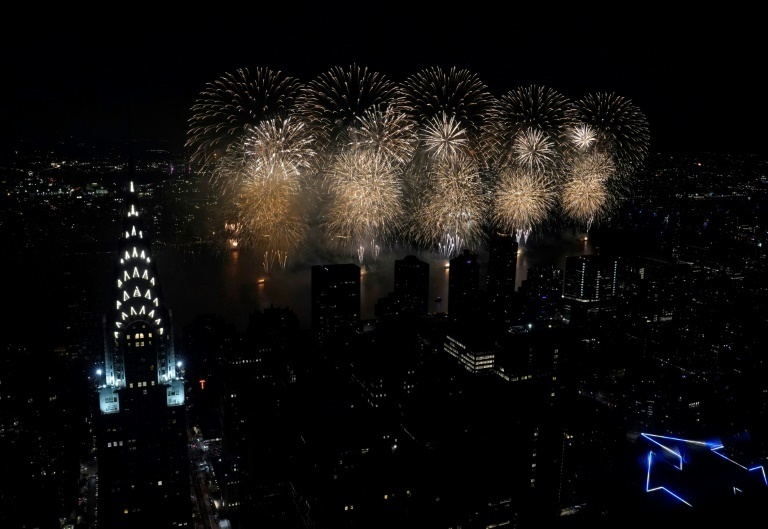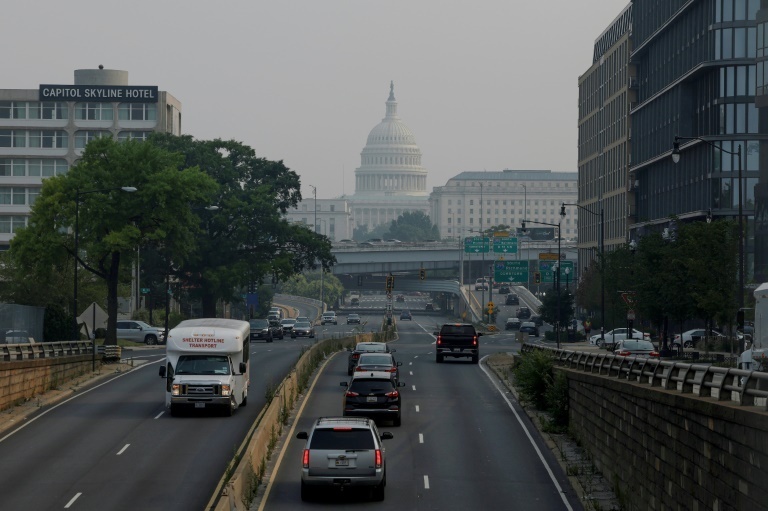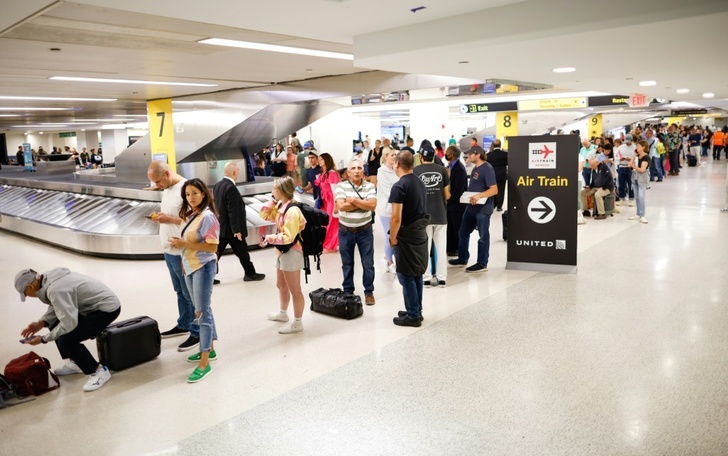Travel forecasters are predicting record travel for the July 4th weekend, but this year's celebration may also be something of a battle with the elements.
The five-day stretch culminates in Tuesday's Independence Day celebration, a highlight of the US summer calendar, known for barbecues, lazing by the pool and fireworks.
A record 50.7 million Americans are expected to venture at least 50 miles from home in the period heading into July 4th, eclipsing the prior peak of 49 million in 2019, according to the American Automobile Association.
But travelers this week got a bitter taste of the impact of seemingly typical summer weather on the stretched US aviation network.
Intermittent rainstorms, thunder and lightning in New York and other East Coast destinations wreaked havoc, forcing the cancelation of more than 3,200 flights to and from the three major New York-area airports since Monday.
Aviation chaos is only one of the potential buzzkills.
Travelers are also tracking how much of smoky air from Canada moves eastward from the Midwest. And extreme heat in Texas and other states has driven talk of a federal disaster declaration to mitigate public health risks.
New York's LaGuardia Airport drew a hearty crowd early Thursday.
"If you really want to go, you've got to deal with it," said Ellen Coakley on Thursday morning upon landing at LaGuardia Airport from Chicago, where one could smell the smoke from Canadian forest fires.
Jennifer Hamilton encountered "packed" airports as she navigated a newly circuitous itinerary to Costa Rica from Washington after construction on an airport runway canceled her original flight.
After landing at LaGuardia, Hamilton was taking an Uber to JFK Airport where she would fly through Bogota, landing at 12:30 am, if all goes according to plan.
- Paying up -
Travel experts see this weekend's expected historic tourist volume as reflecting favorable factors, including a strong US job market and a moderation in gasoline prices.
More than four-fifths of the travelers over the long weekend will be going by car, benefiting from the 25 percent drop in gasoline prices. But they will likely experience "grief at the grill," as Rabobank said of double-digit price increases on beef, lettuce, soda, white bread and potato chips.
"Consumers have taken some heavy punches but they're still standing," said Tom Bailey, senior consumer foods analyst at Rabobank, adding that the July 4th gathering is a "splurge" item.
Even before the pandemic, travel industry experts described a greater preference for young consumers for experiential consumption compared with earlier cohorts.

"Travel remains really robust," said Siye Desta, an equity analyst CFRA Research. "There hasn't been any sign of any pullback in consumer spending in travel, even though prices have meaningfully increased."
- Stormy weather ahead? -
For people traveling this weekend by plane, the biggest worry will be a prolongation of the airport turmoil of recent days.
This week has seen another round of horror stories of flight cancelations, stranded luggage and airport mass sleep-ins that have become a recurring theme in recent years.

But pilots and flight attendant unions pointed at United management, while Transportation Secretary Pete Buttigieg told CNN that United had "some internal issues they need to work through."
United reported it is continuing to see "meaningful improvement after an overnight effort to further repair schedules and match separated crews with aircraft," the airline said Thursday.
"As the recovery progresses, delays and cancelations will continue to decline as we head into what we expect to be a very busy holiday weekend," the company said, adding it is watching weather in Denver and Chicago.
Aviation experts note the industry has generally struggled to ramp up capacity to meet post-pandemic need, with personnel shortfalls dogging the system and fewer planes than expected, due in part to delayed deliveries from Boeing and Airbus due to supply chain issues.
"Airlines have less of a buffer today," said Chris Raite, who analyzes aviation at Third Bridge, a research consultancy.
Charles Everett, aviation director of the Port Authority of New York and New Jersey, is urging travelers to check with their airline before leaving for the airport.
"We expect similar weather to what we've been seeing," he said. "That's why we recommend people check with their airline."
jmb/tjj
© Agence France-Presse
Your content is great. However, if any of the content contained herein violates any rights of yours, including those of copyright, please contact us immediately by e-mail at media[@]kissrpr.com.
Source: Story.KISSPR.com

